Listing Presentation Templates & Scripts
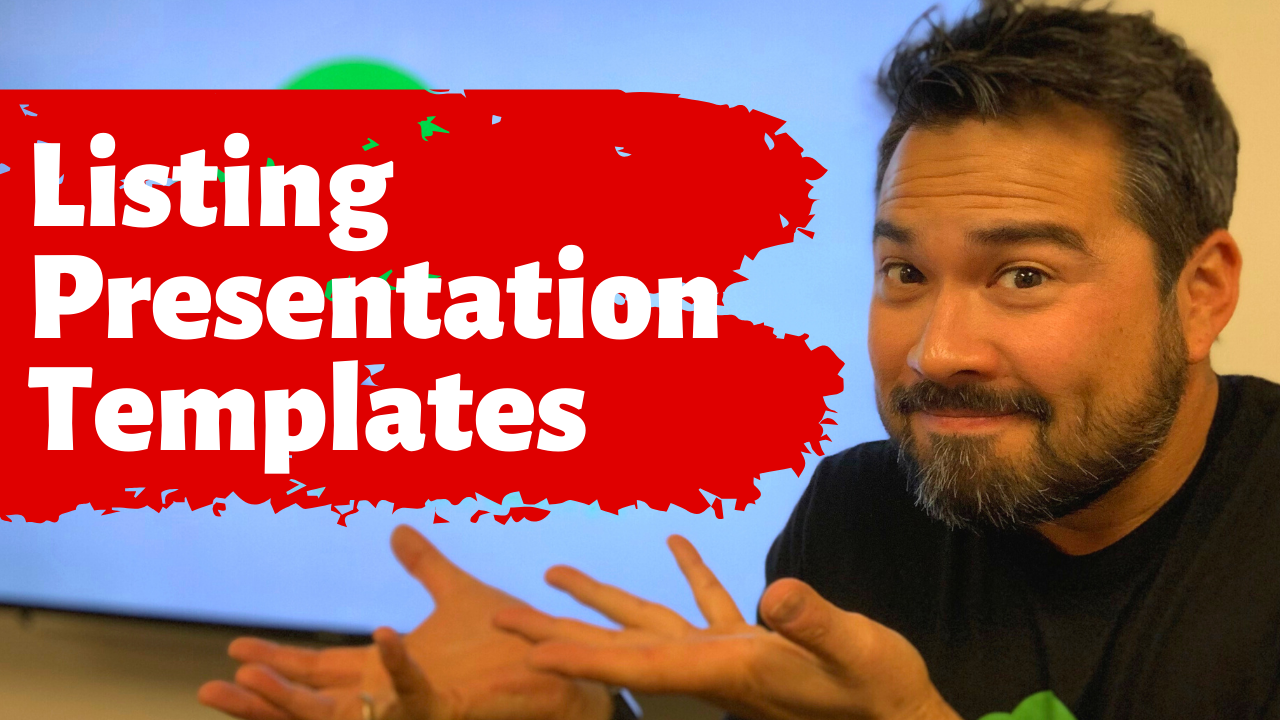
What is a Listing Presentation?
A Listing Presentation is the information a real estate professional shares with a home seller during a listing appointment. During the listing appointment, the real estate agent will learn about the homeowner’s concerns, assess the condition of the home, and persuade the owner to hire the agent to sell their home. Many real estate professionals use an organized, carefully crafted listing presentation to facilitate the appointment.
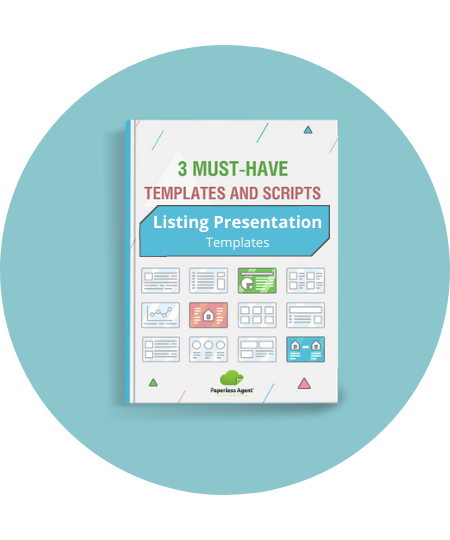
Get the “Listing Presentation Templates” That Help You Beat the Competition and Secure the Listing – Before You Even Show Up!
A listing presentation can be a powerful tool for presenting the real estate professional’s services, benefits, and reasons for choosing them versus a competitor. The listing presentation can be a presentation deck, such as a PowerPoint or Keynote File, a printed booklet, or a binder. While many real estate agents tend to “wing” their listing appointments, having a structured approach to the meeting provides better service and increases the likelihood of the seller listing with you.
What Does a Listing Presentation Do?
The ultimate goal of a listing presentation is to facilitate a successful listing appointment where the home seller hires the real estate professional to sell their home. Which is why a strong listing presentation needs to address concerns every seller has. For example, every seller wants to know how long it will take to sell their home and how much their home will sell for. By addressing these concerns and others, a listing presentation will build the home seller’s confidence in hiring the agent.
The listing presentation should also set expectations for the seller so they know what’s going to happen and what kind of service to expect from the agent. Home sellers also want to know why they should trust in the real estate professional’s competence to sell their home. According to the National Association of REALTORS®, the top deciding factor sellers use in choosing their real estate agent is the agent’s Reputation. The listing presentation should build and affirm the agent’s reputation in the sellers mind.
What Should Be Included in a Listing Presentation?
A Listing Presentation that’s been effectively designed will contain the following:

Get the “Listing Presentation Templates” That Help You Beat the Competition and Secure the Listing – Before You Even Show Up!
The Essential Slides and Scripts for Your Listing Presentation
Okay, so now you know what a Listing Presentation is, why you should use one, and what a good listing presentation should accomplish, let's look at actually creating one.
The video above is taken from a recent training we did, called "Listing Presentation Scripts, Templates, and Skills." In it, Garry Creath, a Listing Expert Agent with more than 20 years of experience, shares some of his top scripts & tips for ensuring every listing appointment is a smooth, seamless process, from meeting the seller to signing the listing agreement.
Here are the slides, tips, and objection handling scripts he recommends.
1. The Us vs. Them Slide
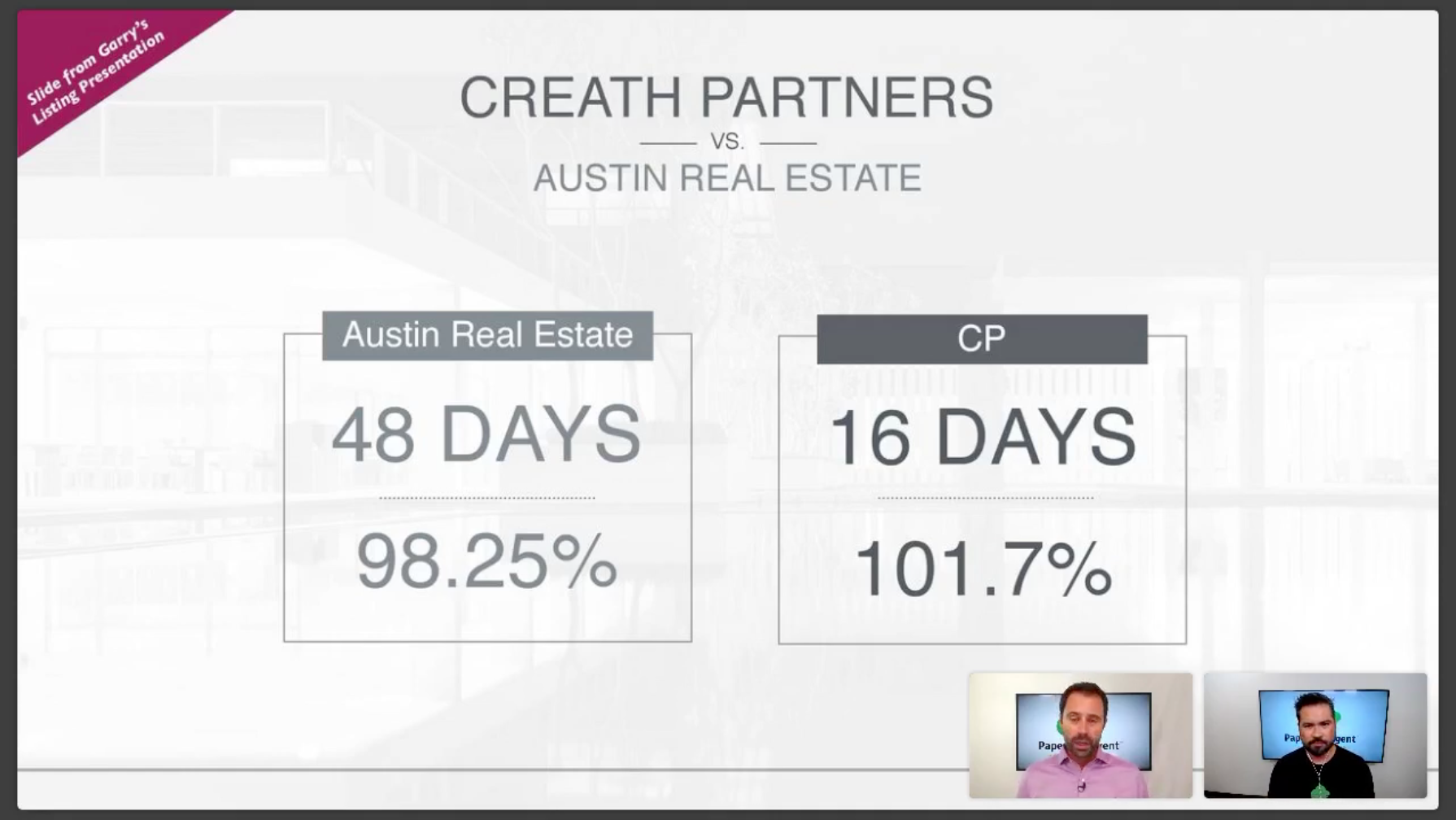
This one slide template may look simple, but it is one of the most powerful slides you can include in your listing presentation. This slide shows how our real estate firm, Creath Partners, outperforms the market in terms of Time on Market and Percentage of Asking Price.
By showing how you outperform the market, you immediately separate yourself from other agents. Then you can take it one step further and show the seller exactly what these statistics mean for them by using this script:
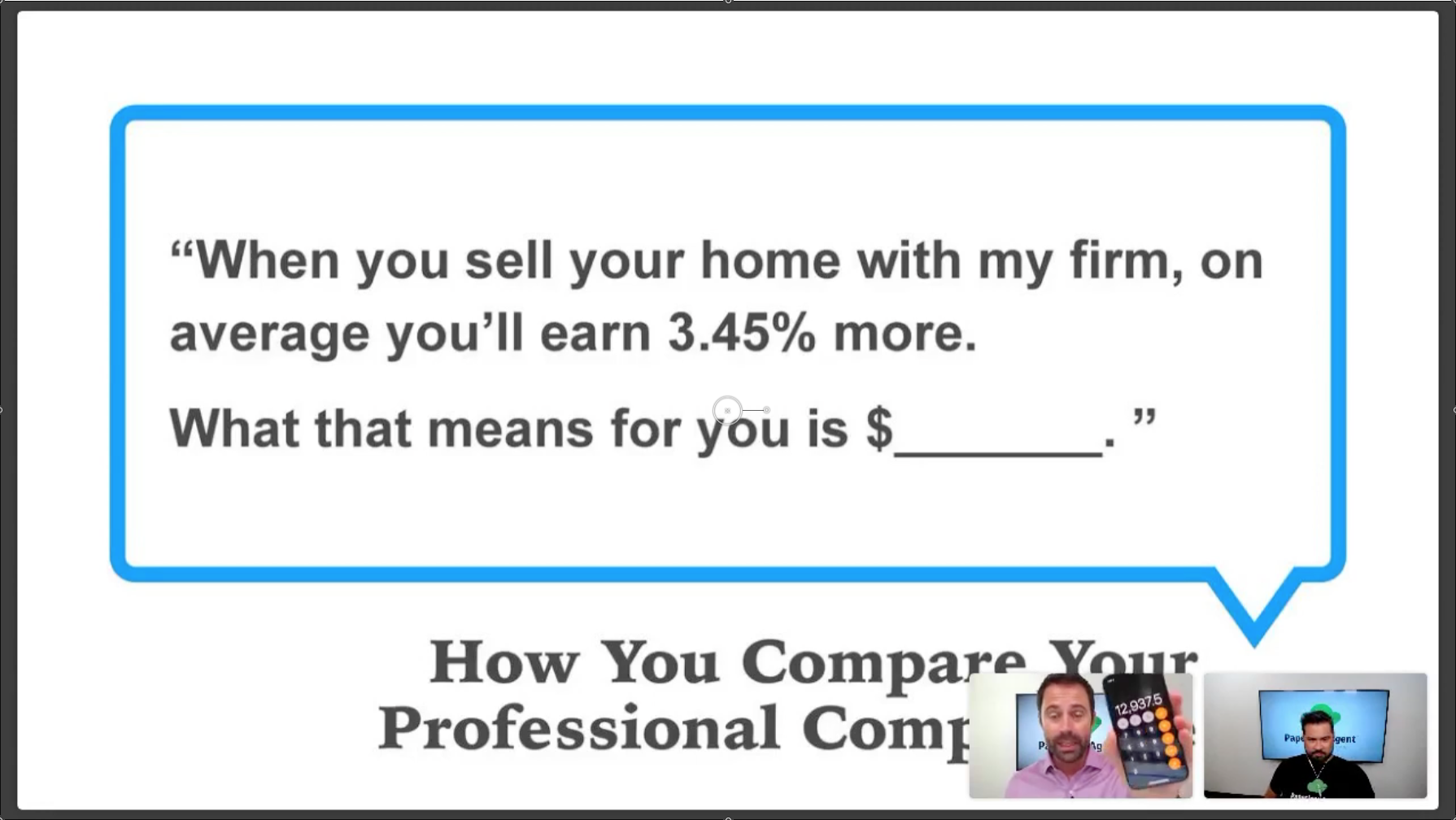
This script accomplishes a number of subtle objectives. First, it shows the seller, in dollars and cents, the benefit of choosing you as their agent.
Second, it subtly plants the seed for the pricing conversation. You're essentially saying, "Assuming we sell your home for $X, this is what it means to you." When you bring up pricing late, they'll already have that "anchor" price in mind.
Finally, it's a powerful way to handle that dreaded question, "Will you discount your commission?" If a seller asks, you can point back to this slide and explain that no, you don't discount your commission because you do X,Y, and Z activities to sell homes faster and for more, which is worth $X to them.
2. The Marketing Plan Slides
Okay. You've shown the seller how you outperform the market. Now you have to back that up. And the best way to back that up is by showing the seller everything you'll do to market their home to potential buyers:
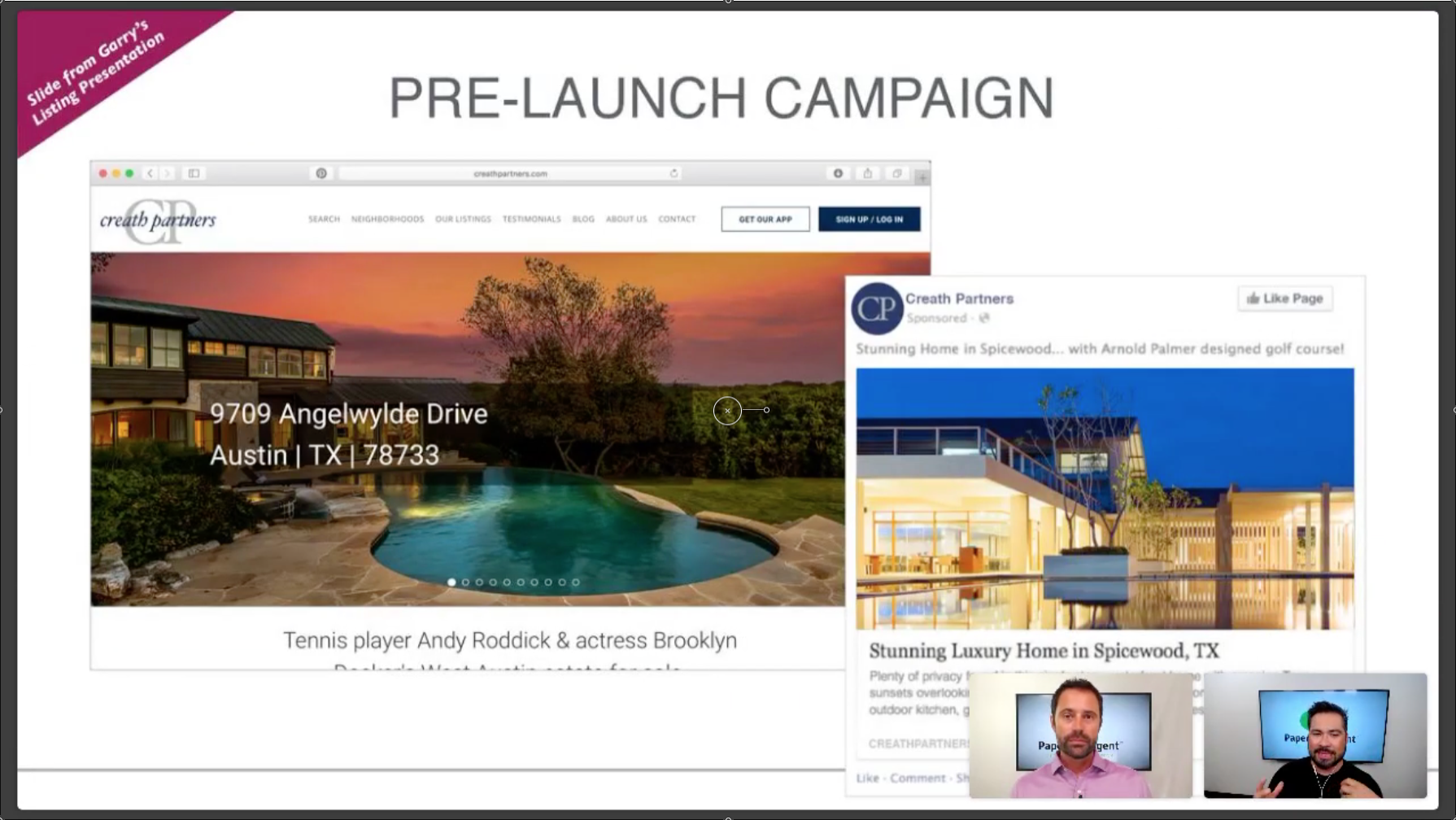
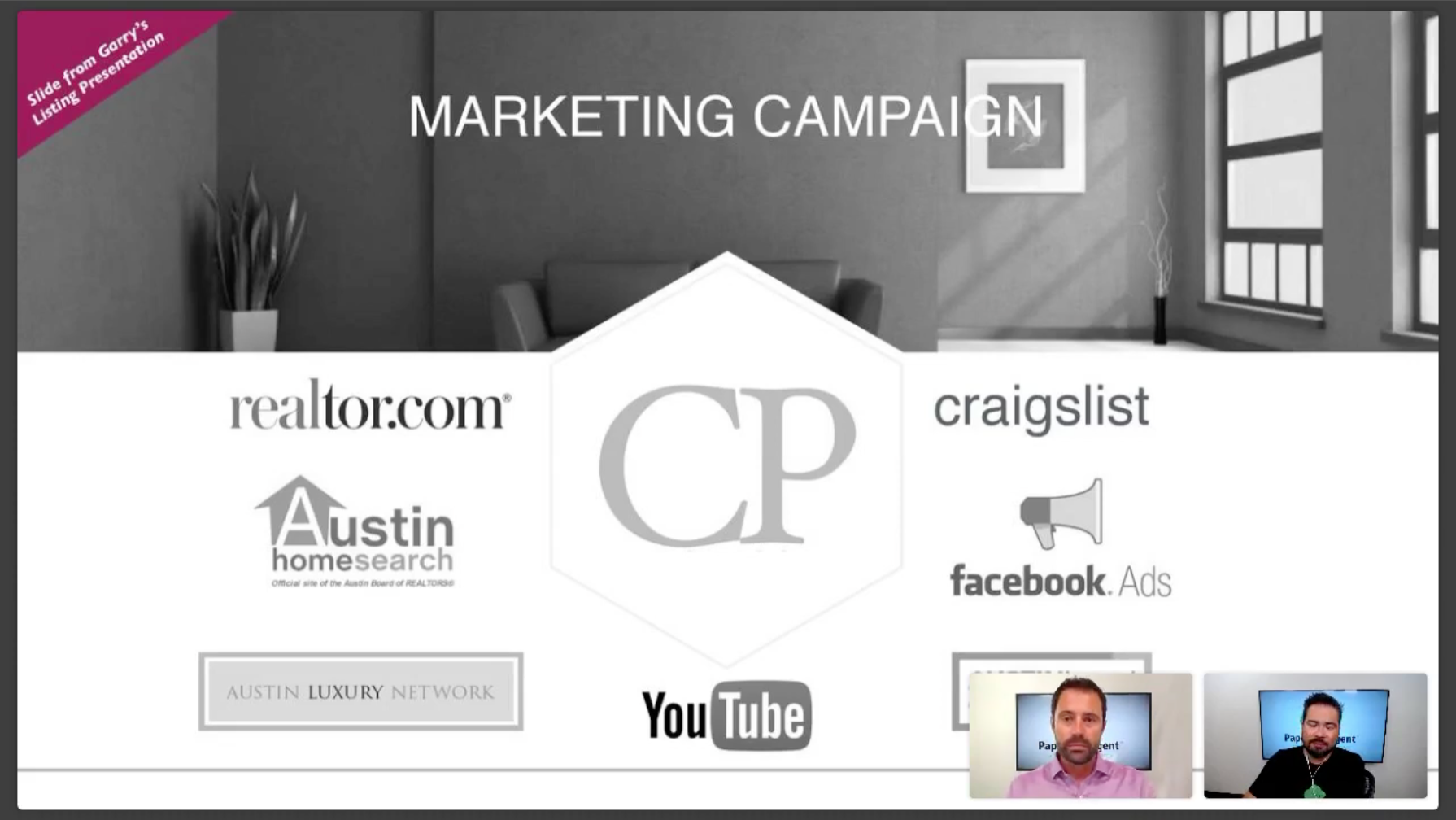
(You should actually use your marketing plan as part of the pre-listing packet you send sellers. If you want more on the pre-listing packet, check out our Ultimate Pre-Listing Packet resource here!)
The number one thing sellers say they want from their listing agent is help marketing their home to potential buyers. So it's absolutely essential you show them your plan for doing so. Walking the seller through everything you'll do to promote their home--from running campaigns to build demand in the market to ongoing opportunities like open houses and Facebook ads--shows them everything you'll do to ensure top dollar for their home.
You can intro these slides with this script:
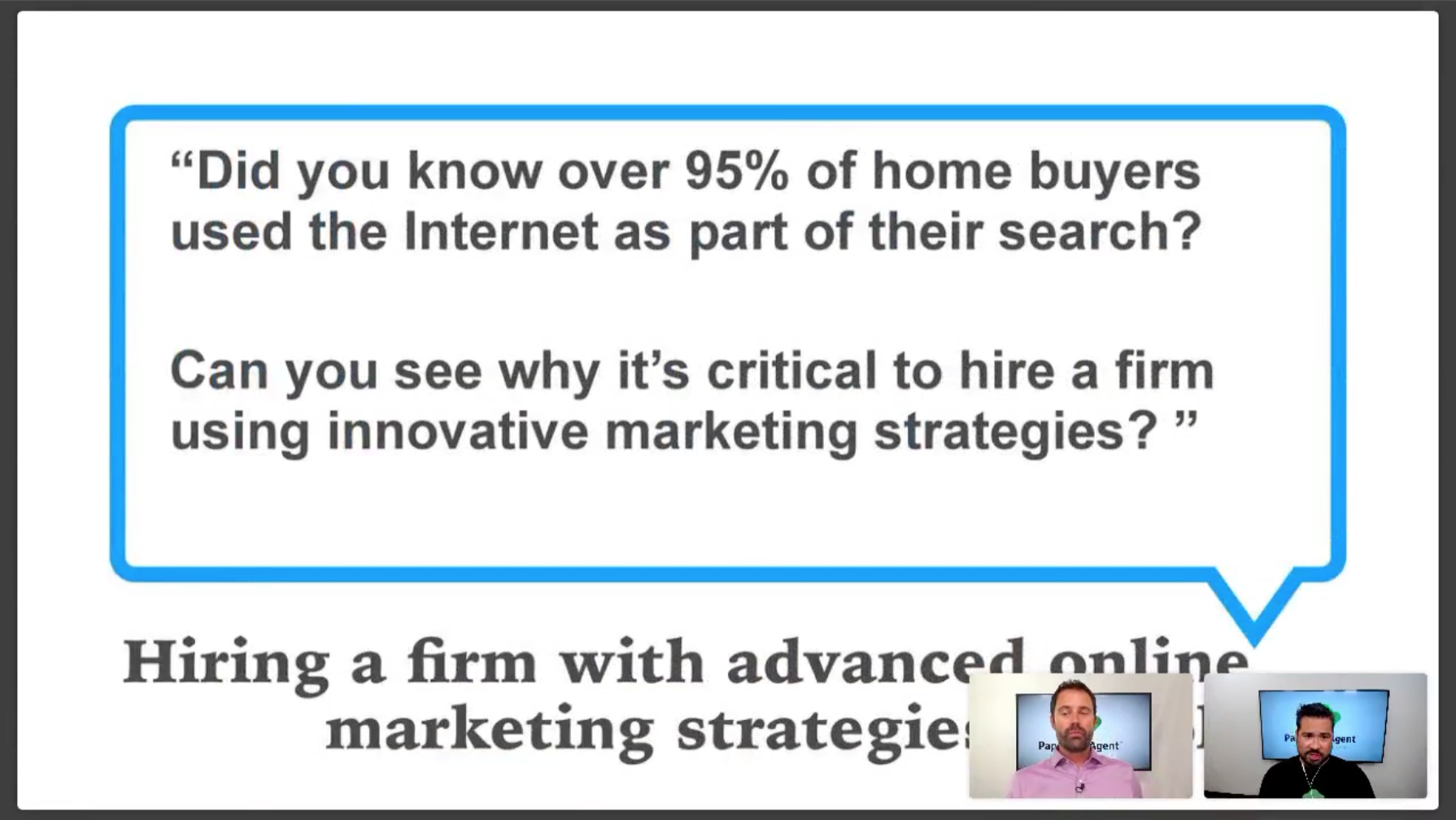
3. Closing the Deal
A lot of agents have trouble "closing," or asking a seller to sign the listing agreement at the end of the appointment. It can feel uncomfortable to ask a seller to sign at the end of your listing presentation.
You can make it feel more natural and easier to broach, however, by setting the close up from the beginning.
Here's the slide we use to set expectations for the entire listing appointment, including the close at the end.
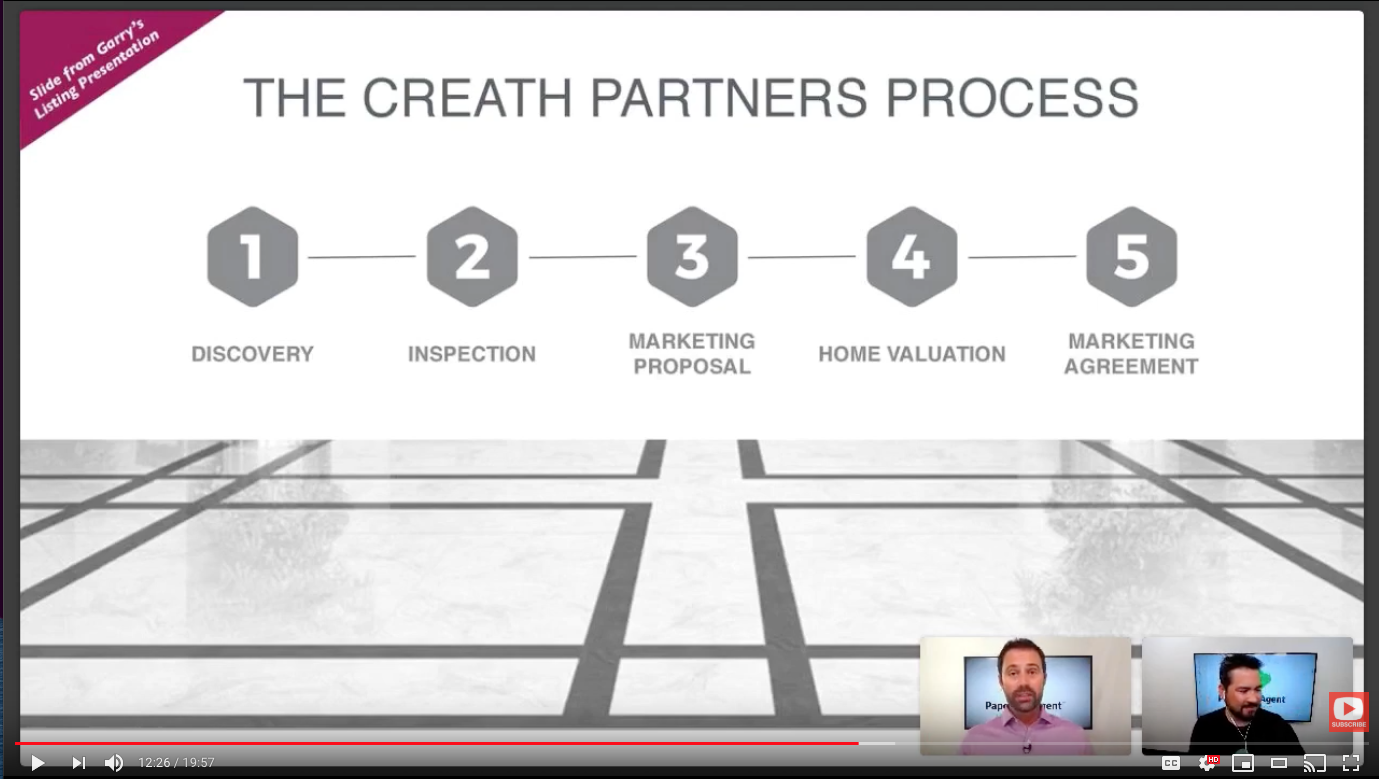
After walking the seller through each stage of what's going to happen during the listing appointment, you can close by saying, "Now at the end of our conversation, assuming you and I both agree we’re a great fit for one another, we’ll review my marketing agreement and sign off on it so I can get started working to sell your home as soon as possible.”
That way, asking to sign a listing agreement at the end of the presentation doesn't feel abrupt or awkward. The seller is expecting it, and the close will feel much more natural.
4. Handling the Pricing Conversation
It's the most common objection or sticking point. Many sellers think their home is worth more than it is, or they want to price it just a bit higher to leave room for negotiation.
The best way to handle this common objection is to educate the seller on pricing before the conversation comes up.
Here's the slide we use to do it:
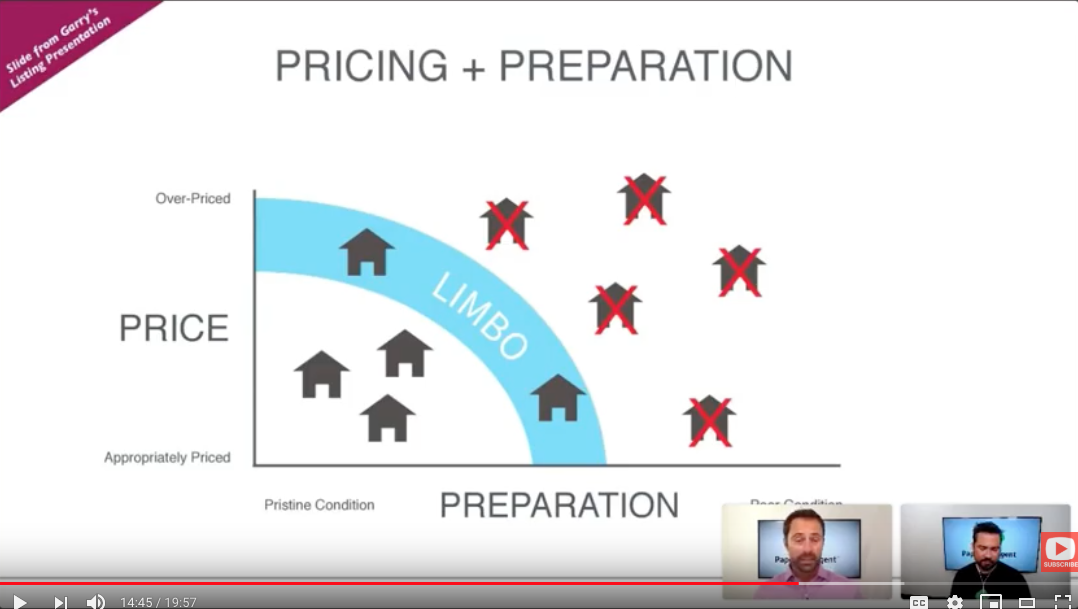
Here's an example of how the conversation for this slide would go:
"Have you ever been looking at homes online and come across a home so overpriced, you think, 'Man, I won't even go look at that one'? Those homes are the ones placed way outside of the market--The homes with the red X's in this slide"
"Other homes are priced slightly too high to leave room for negotiation. These, however, can sit on the market. They also open the door for low ball offers and sell for less than they would have with the right pricing strategy"
"When a home is priced in the market--when it's appropriately priced & in pristine condition--more buyers will see the value, and you can build up more demand for the home. This pushes the price up over market value and is ultimately the area you want to be in."
5. "Will You Discount Your Fees?" Objection
Again, the most effective way to handle the objection, "Will You Discount Your Fees?" is to prevent it from coming up at all. When you combine the "Us vs Them" and "Marketing Plan" slides, we've found that 9 out of 10 times sellers won't ask this question because you've shown them your value.
If, however, a seller still asks, you can say "You know what, I'm sorry. Apparently, I didn't do a good job of explaining how we outperform the market place. So let's take another look at the slides where I show you how we outperform the market and what that means for you."
Get the “Listing Presentation Templates” That Help You Beat the Competition and Secure the Listing – Before You Even Show Up!

Looking for more listing tips? Check out our guide to the Listing Presentation Templates!
Conclusion
Now that you have some of the critical Listing Presentation Templates & Scripts and understand what an effective listing presentation needs, you can go create your own! There’s a little work that goes into setting it up, but once you do, you’ll have a competitive advantage built into your listing presentation process.